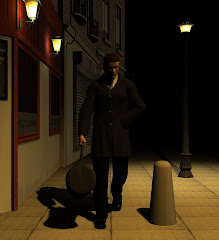In the early eleventh century Canute, king of England, took his throne to the beach at Bosham, West Sussex. The tide was coming in. Canute ordered it to stop. The tide appeared not to hear. Canute repeated his command many times but eventually had to retreat because his feet were getting wet.
Canute's intention was supposedly to prove a point to his overly sycophantic courtiers. He was then one of the most powerful men in the world. Not only had he united England, not an easy task in the eleventh century, he had welded it to Norway, Denmark and part of Sweden to build an impressive northern empire. His courtiers were very aware of this and their flattery was grating on Canute's nerves. After all, even he was still controlled by higher powers. God was God and he, Canute, was still just a man. So stop mixing us up, Aelthwan of Glostobchick and the rest of you.
What Canute inadvertently demonstrated was that he was also subject to another force. This is the capricious beast of popular history. Because while we have all heard the story of Canute and the waves, we don't always remember that he knew what he was doing. The version that springs first into the mind is that Canute the Great really did believe he controlled the sea. He got an unpleasant shock when the tide disobeyed him. And so he is relegated into the same zany category as the Roman Emperor Caligula, who took an army to the English Channel, ordered them to what the water with their swords for a while and declared himself Conqueror of Neptune.
We like to cut them down to size, these great figures of the past. Very often the most effective way is to take a single damning fact and wrap it around them like a shroud. Alfred burnt the cakes; Catherine the Great shagged a horse; George III was off his head; Victoria had a face like a slapped arse; and so on. Sometimes it can be a simple as a name. Alfonso the Slobberer could have united or conquered as much as he wanted but that isn't going to be the vision conjured up. Said 'facts' might be exaggerated, distorted or simply invented but that doesn't matter. Proper historians can disprove them over and over again but the stories remain with us. The process might be illogical but it is probably healthy. Disrespect or past rulers encourages irreverence towards current ones; something which cannot happen enough. And we see how they are already being distorted and reduced. John Major stood on a soap box and nobbed Edwina Curry (though not simultaneously); Bill Clinton let That Woman do Those Things to him; George W Bush talked like an intoxicated monkey; Tony Blair just grinned and grinned and grinned. These are the images which our children will learn, unless something more lurid is found. Blair fretted over his legacy in the last years of his rule. Someone should have told him: it's out of your control, Tone.
Canute may not have gone to Bosham at all. It could have happened at Southampton. Or, most likely, not at all. Perhaps he got to the beach, found it was already high tide and just said what would have happened if he tried bossing it around. Or the whole thing could have been fabricated. Possibly by a courtier asserting his king's wisdom; thus continuing the flattery which the parable was intended to banish. It really doesn't matter. Nor, in the end, does the fact that we remember it backwards. Because it just makes a better story, a mad king getting his come-comeuppance; rather than a smart-arse king doing the not-exactly-difficult trick of outwitting his courtiers.
